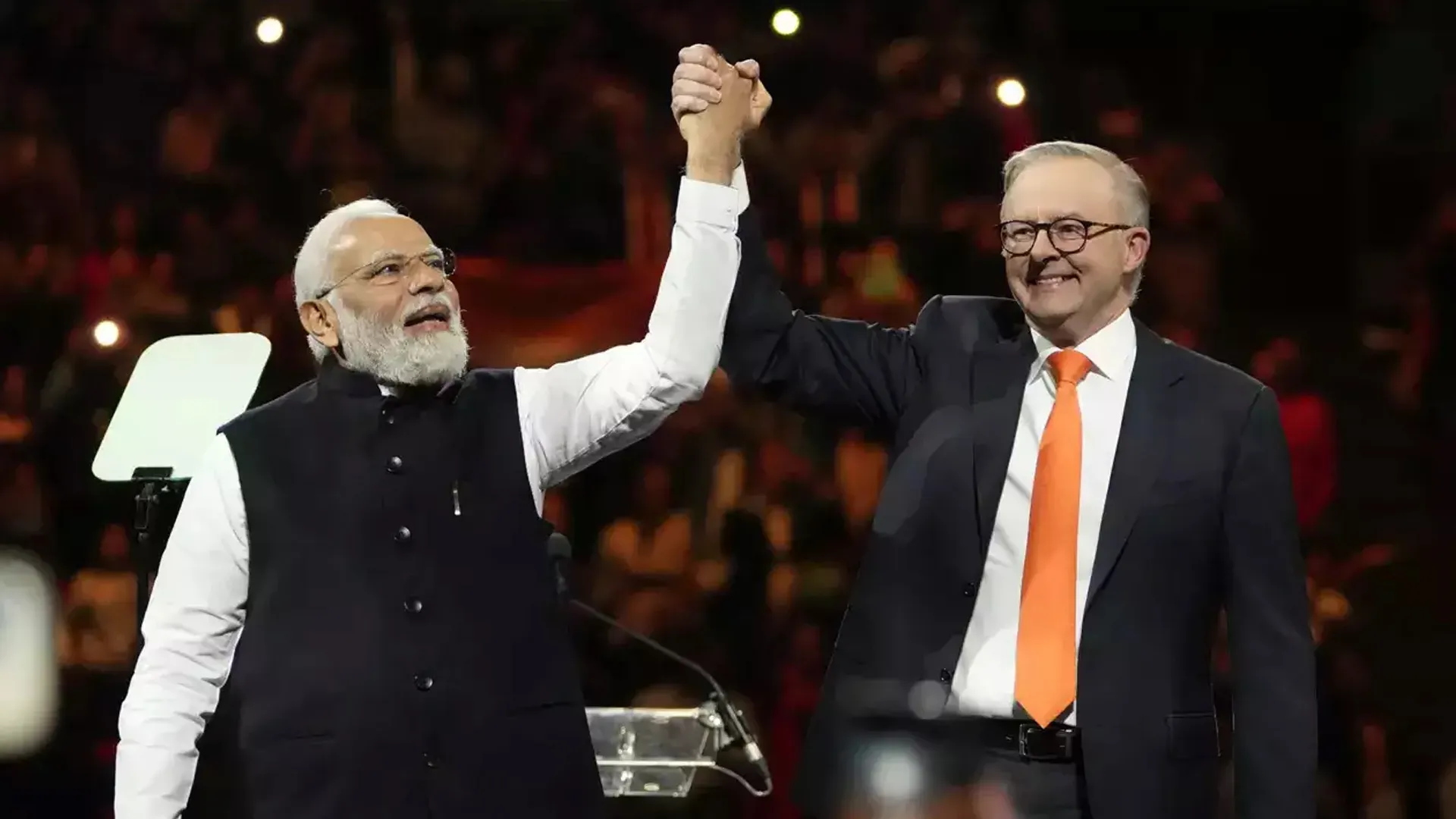Australian Prime Minister Anthony Albanese has announced his plans to pursue a third term if he is re-elected in the upcoming May 3 elections. In an exclusive interview with The Nightly, Albanese highlighted the significance of stable leadership, hinting at a significant Cabinet reshuffle if his government secures another term. This revelation comes at the right time as Albanese battles for a second term and preserves the Labor Party’s three-seat majority to escape a minority government.
While Anthony Albanese is seeking a second term, his decision to run for a third has been met with raised eyebrows, considering the tumultuous history of Australian politics. A win in May would be a milestone for Albanese as it would put an end to a decade-long merry-go-round of prime ministers that started with Julia Gillard’s reign in 2010 after she ousted Kevin Rudd. This trend lasted under the eight-year rule of the Liberal Party to Albanese’s narrow 2022 victory.
A Secure First Term Understated Political Turmoil
As much as Albanese’s government struggled in a tumultuous first term, its accomplishments were admired by Anthony Albanese. He had spoken positively in an interview on The Nightly about the possibility of the current government’s having the most secure first term ever in the history of post-war Australia compared to the history of leadership churn for the preceding decades. He pointed out, “I’m not getting ahead of myself — I’m on a ballot on the third of May, and I’m committed to winning. And I will complete a full term — I’m committed to doing that. Because I believe there’s been too much chopping and changing.”
Albanese is seeking to lead for more than nine years, a steady time for the Labor Party. If he is successful, he will be the first leader since John Howard in 2004 to secure a second term. If he continues for another complete term, he will overtake Paul Keating as Labor’s second-longest serving prime minister post-war, only behind Bob Hawke.
International Relationships of Anthony Albanese
Albanese also emphasized the importance of long-term leadership in the global arena, especially in building ties with powerful world leaders like Indian Prime Minister Narendra Modi. He explained that Australia’s image has been tainted by its record of regular changes in prime ministers. “It’s said, overseas, that Australia chopping and changing prime ministers is not a good thing,” he added. “Getting stability into Australia’s leadership and our position in the world as well does take time.”
Through his leadership, Albanese has fostered the most important diplomatic relationships, including with Indonesian President Prabowo, and met Modi 11 times, reiterating their significance for the national interests of Australia.
Cabinet Reshuffle Post-Election
Among Albanese’s first tasks if he returns to office will be reshuffling his Cabinet. The rules within Labor enable the Prime Minister to determine the ministerial portfolio allocation, but the caucus decides who occupies Cabinet spots. Albanese signaled that although the hard core leadership team of Richard Marles (Defence), Penny Wong (Foreign Affairs), Jim Chalmers (Treasury), Don Farrell (Trade), and Katy Gallagher (Finance) would stay put, other roles will be on offer.
“The key individuals in my Government I expect to maintain the same portfolios throughout the leaders group, post-election as well,” Albanese stated. But with high-profile retirements in the government, such as Linda Burney, Brendan O’Connor, Bill Shorten, and Stephen Jones, the reshuffle will have to be done in order to make room for fresh faces.
No Guarantees for Tanya Plibersek’s Portfolio
In a curious twist, Anthony Albanese did not promise to keep Tanya Plibersek in the environment portfolio, even though they are best friends. “I’ll pledge to attempting to win this election. I don’t assume,” he said, though he praised Plibersek’s work in her present role. Plibersek, who joked off a cringe-worthy public moment between them at a recent campaign rally, declared she was confident about their working relationship, describing them as “best buddies.”
The Significance of a Majority Government
Albanese also emphasized the significance of having a majority government, especially in times of global economic uncertainty. He underscored the need for confidence in the economy and in governance, citing that a majority in the House of Representatives would provide easier passage of bills and more political stability. “Economic confidence could be more reassured with a majority government,” he clarified.
With the election fast approaching, Albanese’s focus remains on securing the Labor Party’s future by steering clear of speculations about his leadership and plans. His ambition, holding a clear vision for a full second term while laying foundations for a third, is seen as a shrewd strategy to consolidate stability within his party and guarantee its long-term dominance in Australian politics.
Anthony Albanese Looks Back at His Leadership
As for regrets, Albanese accepted that no leader is without their challenges but opted to sidestep mentioning specific criticisms. “There are always things you could do better,” he said, but he made it clear that he does not dwell on media evaluations of his performance. Rather, he keeps himself busy with what lies ahead and the urgent necessity of defending his government’s second term in the interest of the country.
In the weeks ahead, the nation will be glued to the May 3 election, when Albanese’s political fate—and the destiny of Australia’s leadership—will be decided.









